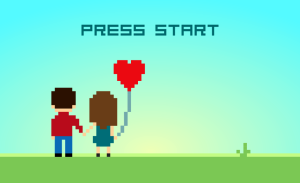In The Middle Ages the average life expectancy at birth was 35. And even in the 20th century – so not even 100 years ago – the life expectancy at birth was as little as 31. But why I am talking about life expectancy ‘at birth’? Isn’t that obvious? Life, after all, always starts at birth, doesn’t it? That’s true, but in The Middle Ages about 1/3 of the children died before the age of 5, so not taking these first years into consideration could significantly change the numbers. But still: even when excluding this 1/3 of the children from the calculations, it seems save to say that in the (not so distant) past people died much younger than we do nowadays – today, the (world) average life expectancy is 67,2 years.
Now: imagine you are born in The Middle Ages. Imagine that you would survive your childhood, and wouldn’t be killed immediately by the plague or any other kind of nasty disease. Imagine that you experience everyone – including your mother, father and uncles – die when you are, let’s say, 16. Given that you would know that you are about to die pretty young, how would you live your life? And in particular: what would you do different compared to what you are doing today (in the 21th century)?
Maybe, after thinking about this question for a while, you will come to following conclusion: it might have been much better if we wouldn’t become as old as we do. If we – just like those people in The Middle Ages – would die in our thirties. Wouldn’t we live a much more honest life then? ‘Honest’ in the sense that we would stay true to what we really want? Or would you still start studying Law although you don’t really want to? Would you still quit your aspirations in the music business because ‘It’s so hard to make a decent living out of it’? Would you keep being insecure and hope that someday – before your 35th – you can finally start living your life on your terms?
And there are other advantages of dying younger. No more need to pay for the old and sick people. No more need to increase governmental health expenditures. No more need to listen to those grumpy old people complaining about ‘the good old days’, and how those times will never come back. No, we would only have people who are young by heart (and body). People who are naive enough to believe that they can change the world. And people who know that, if they want to change the world, they should start doing so now and not wait until they die or until their dreams are killed by dogma. Sounds like utopia, doesn’t it?
But we should make sure that not everyone dies young. If we all died before the age of 30 we would never accumulate the scientific knowledge our society needs to prosper. No-one would be able to develop into a PhD-mind, which is required in order to come up with the next new gasoline. And dying in your early thirties might make your life more depressing than valuable: realizing in your twenties that you’ve only got five more years to live doesn’t necessarily make you live a more honest life. The only benefit might be that the alcohol business would flourish. So let’s extend the preferred life expectancy to – let’s say – the milestone of 40. That is: let’s make 40 the new 80.
Making sure that everyone dies at age 40 would prevent people from chasing status instead of following their hearts. After all, you don’t have time to climb the ladder of success when your time is short. By the time you are about to reach the top, your time is up, and you have missed that step that will make you the king of the crowd.
So maybe we should make a deal with the government. Maybe they should put some narcotics in the drinking water of people celebrating their 40th birthday. Sinister? Maybe. Twisted? Maybe. But I hope you can see through the gore and into the core of this message.
What do you think?

